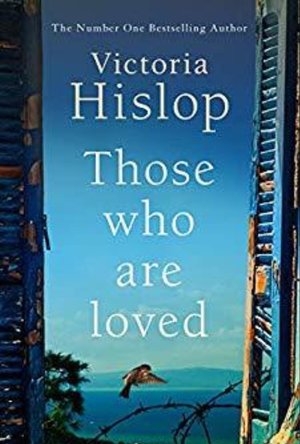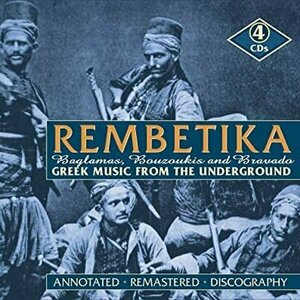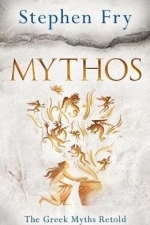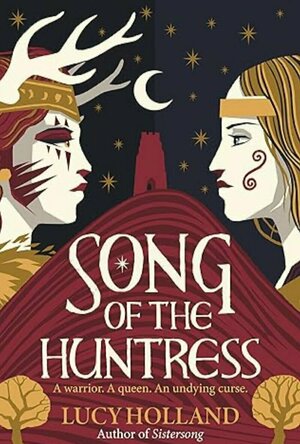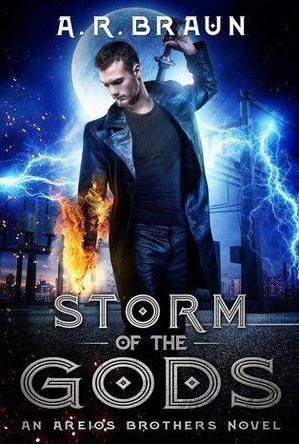Search
Search results
ClareR (6091 KP) rated Those Who Are Loved in Books
May 30, 2019
An emotional look at modern Greek history.
This book is about the lives of the Koralis family, and particularly Themis, from 1930 to 2016. We follow them through some of the most disruptive times in Greek history - I hadn’t actually realised how deeply traumatic recent Greek history was.
Themis is a partisan fighter during WW2, trying to get the Germans out of Greece, and then fighting the right-wing government who had supported the invading Germans. She ends up a prisoner and endures terrible living conditions and violence at the hands of her prison guards. She returns home, marries and has a family, but her past is always with her. Greece doesn’t allow her to forget, as it continues to be led by a military government under martial law.
I loved following Themis and her siblings lives in the earlier chapters of the book, the history I’d never known about before (that Victoria Hislop describes so well), and her children and their lives in the latter half of the book.
Themis is a quietly formidable woman, who always stands by her beliefs and her family, and there are some really very emotional parts to this book.
Many thanks to The Pigeonhole for serialising this wonderful book - I’ll definitely be buying some copies as birthday presents this year, that’s for sure.
Themis is a partisan fighter during WW2, trying to get the Germans out of Greece, and then fighting the right-wing government who had supported the invading Germans. She ends up a prisoner and endures terrible living conditions and violence at the hands of her prison guards. She returns home, marries and has a family, but her past is always with her. Greece doesn’t allow her to forget, as it continues to be led by a military government under martial law.
I loved following Themis and her siblings lives in the earlier chapters of the book, the history I’d never known about before (that Victoria Hislop describes so well), and her children and their lives in the latter half of the book.
Themis is a quietly formidable woman, who always stands by her beliefs and her family, and there are some really very emotional parts to this book.
Many thanks to The Pigeonhole for serialising this wonderful book - I’ll definitely be buying some copies as birthday presents this year, that’s for sure.
Alex Kapranos recommended Greek Music From The Underground by Various in Music (curated)
Accessible (2 more)
Simplified
Incredible insight into how much the modern world has taken from Greek and Roman culture
A lot of pretty complex names to remember (1 more)
Constant footnotes (usually at least one per page) to explain certain aspects, or highlight an interesting fact.
Mythos - The Greek legends retold
Ah, what a great read. Stephen Fry writes exactly how you would expect him to, if you've ever heard him speak. He understands the subject matter, and more importantly, realises how easily a reader will be overwhelmed by the sheer amount of players in these myths and answers that problem without condescension.
The book reads as a quasi-novel, from the birth of the universe to the third and fourth generations of immortals (this includes the creators, the titans, the gods, and mythical creatures/characters, spawns of titans and gods, gods and creatures, gods and men and all sorts.) and their adventures, each following on from the other.
I have always had an interest in the Greek myths and gods, and as I suggested above the really interesting part of these stories, beyond the very human nature of the immortals (jealousy, unreasonableness, duplicity, rage, deceit and pride) which makes for so much more of a believable creation theory, is the myriad ways they have influenced English language (any many others I'm sure). To give an example (I'm showing my own ignorance flagrantly here) a simple thing, the alphabet. It never occurred to me, in my own self centered existence, this simply come from the first and second letters of the Greek alphabet. Alpha and Beta. So simple, so obvious, yet I never made this connection.
The stories themselves are wonderful, and the best thing about them is they all tie in with a creation theory. Something, whatever it is, is learned, or created. Some paradigm is set, some moral conundrum is answered, or something in the world is explained by the end of every story told (the tides, the moon, wine, love, soul, war, sex, the seasons, humanity itself just to name a few). It's such an entertaining read, and I find myself telling anyone who will listen some of the revelations I find in this book page on page on page.
As an end note, don't be overwhelmed by the prospect of reading about these stories, this installment ONLY covers from creation, to the establishment of the twelve Greek gods, and their children. It stops before the even greater amount of legends stemming from human demigods (Hercules, Perseus etc) and these are picked up in Fry's most recent offering, Heroes (which I am yet to read).
If you have any interest in the Greek mythology, or etymology, or even history as a whole, this is absolutely one for you.
- Rob
The book reads as a quasi-novel, from the birth of the universe to the third and fourth generations of immortals (this includes the creators, the titans, the gods, and mythical creatures/characters, spawns of titans and gods, gods and creatures, gods and men and all sorts.) and their adventures, each following on from the other.
I have always had an interest in the Greek myths and gods, and as I suggested above the really interesting part of these stories, beyond the very human nature of the immortals (jealousy, unreasonableness, duplicity, rage, deceit and pride) which makes for so much more of a believable creation theory, is the myriad ways they have influenced English language (any many others I'm sure). To give an example (I'm showing my own ignorance flagrantly here) a simple thing, the alphabet. It never occurred to me, in my own self centered existence, this simply come from the first and second letters of the Greek alphabet. Alpha and Beta. So simple, so obvious, yet I never made this connection.
The stories themselves are wonderful, and the best thing about them is they all tie in with a creation theory. Something, whatever it is, is learned, or created. Some paradigm is set, some moral conundrum is answered, or something in the world is explained by the end of every story told (the tides, the moon, wine, love, soul, war, sex, the seasons, humanity itself just to name a few). It's such an entertaining read, and I find myself telling anyone who will listen some of the revelations I find in this book page on page on page.
As an end note, don't be overwhelmed by the prospect of reading about these stories, this installment ONLY covers from creation, to the establishment of the twelve Greek gods, and their children. It stops before the even greater amount of legends stemming from human demigods (Hercules, Perseus etc) and these are picked up in Fry's most recent offering, Heroes (which I am yet to read).
If you have any interest in the Greek mythology, or etymology, or even history as a whole, this is absolutely one for you.
- Rob
ClareR (6091 KP) rated Song of the Huntress in Books
Jun 25, 2024
Song of the Huntress was a really enjoyable listen, narrated well by Kristin Atherton. It felt like I was in 60AD with them: the descriptions of the land, the court, the battles and the Wild Hunt; the inner thoughts and motivations of Herla, Queen Æthelburg of Wessex and her husband King Ine were all described and narrated in such a way that I wanted to keep listening.
This had just the right amount of history, myth and magic for me - well, anything with those three things in is a winner, in my opinion!
With the resurgence of Greek Myth (yes, I’m a fan), it has been really heartening to see the odd Norse and Celtic myth and folklore book coming out. I enjoy a good retelling, and 5is is a good read. Yes, there are some seemingly modern themes: Æthelburg and Herla’s attraction and Ine’s asexuality in particular, but who’s to say these weren’t appropriate in 60AD? I’m sure homosexuality and asexuality have been a ‘thing’ for as long as there’s been humans (there probably is someone who could say - this is the internet, after all).
To me, as a listener/ reader, this just felt really genuine and well researched. I loved learning about the characters and their world.
Just as Sistersong left me eagerly awaiting Song of the Huntress, I’m really looking forward to whatever comes next from Lucy Holland.
This had just the right amount of history, myth and magic for me - well, anything with those three things in is a winner, in my opinion!
With the resurgence of Greek Myth (yes, I’m a fan), it has been really heartening to see the odd Norse and Celtic myth and folklore book coming out. I enjoy a good retelling, and 5is is a good read. Yes, there are some seemingly modern themes: Æthelburg and Herla’s attraction and Ine’s asexuality in particular, but who’s to say these weren’t appropriate in 60AD? I’m sure homosexuality and asexuality have been a ‘thing’ for as long as there’s been humans (there probably is someone who could say - this is the internet, after all).
To me, as a listener/ reader, this just felt really genuine and well researched. I loved learning about the characters and their world.
Just as Sistersong left me eagerly awaiting Song of the Huntress, I’m really looking forward to whatever comes next from Lucy Holland.
Debbiereadsbook (1669 KP) rated Storm Of The Gods: An Areios Brothers Novel #1 in Books
Sep 1, 2018
a good solid 3 stars
Independent reviewer for Archaeolibrarian, I was gifted my copy of this book.
30 years ago, the Greek gods re-emerged into the modern world from their enforced sleep. Since then, scions, direct descendants of those gods, have been doing their bidding and keeping the human population safe from the mythical beats of old. Derek and his 18 year old brother Liam, are war scions, doing the bidding of Ares, the god of war. Ares orders Derek to find and kill four rogue scions, by threatening Liam and Derek will do anything to keep his brother safe. But not all is as it seems, and Derek, Liam and the four scions find themselves in a battle to keep the mighty Titans at sleep.
**insert sigh**
For the most part,I did enjoy this. It took a while for me to get into it. There are several HUGE info dumps near the beginning and I didn't like that., It came at you all in one go, and I did not process all of that information, there was so much. It meant I got lost a little in places later on.
But it's all the history of the gods that dumps on you. You don't get all of Derek and Liam's history in that dump. That comes out in dribs and drabs, slow enough for you to process their history, before the next bit is thrown at you. And I think there may be more to come, I really do.
It is HEAVY on the fighting. Derek, Liam and the scions do a lot of fighting and it is described in all its detail. A bit too much for me.
Only Derek has his say, in the first person. I think if Liam, and maybe one of the scions, Selena, had their say too, even in the first, I might have enjoyed this one a little more.
I DID like the story itself, info dump and fighting aside, I did not see a lot coming at me, kept me on my toes.
There is something brewing between Derek and Selena, and I hope that plays out how I see playing out! But Derek has more secrets to reveal, some I don't think he even knows about yet. And he still has to get out of the war pact made with Ares, but to do that, Derek has to do what Ares asked him to. Derek does not want to do that now.
Will I read the next book?? Yes, I'd like to, if only to see how this all goes down.
So, because of the massive info dump, and because only Derek has a say....
3 solid good stars
**same worded review will appear elsewhere**
30 years ago, the Greek gods re-emerged into the modern world from their enforced sleep. Since then, scions, direct descendants of those gods, have been doing their bidding and keeping the human population safe from the mythical beats of old. Derek and his 18 year old brother Liam, are war scions, doing the bidding of Ares, the god of war. Ares orders Derek to find and kill four rogue scions, by threatening Liam and Derek will do anything to keep his brother safe. But not all is as it seems, and Derek, Liam and the four scions find themselves in a battle to keep the mighty Titans at sleep.
**insert sigh**
For the most part,I did enjoy this. It took a while for me to get into it. There are several HUGE info dumps near the beginning and I didn't like that., It came at you all in one go, and I did not process all of that information, there was so much. It meant I got lost a little in places later on.
But it's all the history of the gods that dumps on you. You don't get all of Derek and Liam's history in that dump. That comes out in dribs and drabs, slow enough for you to process their history, before the next bit is thrown at you. And I think there may be more to come, I really do.
It is HEAVY on the fighting. Derek, Liam and the scions do a lot of fighting and it is described in all its detail. A bit too much for me.
Only Derek has his say, in the first person. I think if Liam, and maybe one of the scions, Selena, had their say too, even in the first, I might have enjoyed this one a little more.
I DID like the story itself, info dump and fighting aside, I did not see a lot coming at me, kept me on my toes.
There is something brewing between Derek and Selena, and I hope that plays out how I see playing out! But Derek has more secrets to reveal, some I don't think he even knows about yet. And he still has to get out of the war pact made with Ares, but to do that, Derek has to do what Ares asked him to. Derek does not want to do that now.
Will I read the next book?? Yes, I'd like to, if only to see how this all goes down.
So, because of the massive info dump, and because only Derek has a say....
3 solid good stars
**same worded review will appear elsewhere**
Rachel King (13 KP) rated A Short History of Myth in Books
Feb 11, 2019
For such a short book, I developed quite a strong opinion about the text while reading it. I have been curious about Armstrong's writings for a long time, but this is the first attempt I have made at actually reading anything by her. I have always been a fan of ancient mythology, such as Greek and Egyptian, so this seemed like an easy choice.
In seven chapters, Armstrong takes a simplified stroll through history, focusing on the concept of myth and its impact on civilization. All throughout the book, she attempts to support her claim that a person can believe in myths without believing that the myths are actually true, and that the failure of modern society is by not following her specific edict. While this notion strikes me as absurd, I keep reading because, hey, it's a short book.
While I know only bits and pieces about many of the world's religions, I do know both the history and the holy book of my religion, Christianity. It becomes apparent to me early in the text that she is masking her opinions and interpretations of this religion as actual fact, so I can only imagine how she misconstrues other religions.
Her citations were lacking to me, with many claims going unsupported, others only partially supported, such as citation #84 and #30, and some citations simply not even applying to the specified text, such as citation #87. In citation #55, she claims that the Bible contains a Creation myth in which God brings the world into being by killing a sea monster, but one of the four verses she cites make no reference to anything of the sort (Job 3:12), and the other three (Isaiah 27:1, Job 26:13, Psalm 74:14) that do mention a leviathan cannot be interpreted that way when read in context. Isaiah is describing the end of days, while Job merely says that God created the serpent, and the verse in Psalm is within the context of a song about God rescuing the Hebrews from Egyptian slavery -- no relevancy to Creation. She makes the claim that Paul "was not much interested in Jesus's teachings, which he rarely quotes, or in the events of his earthly life." This claim is easily disproved by examining how Paul's words line up with Jesus's in John 5:21 vs. 1 Corinthians 15:22, Matthew 6:25 vs. Philippians 4:6, and many other passages.
While going through the citations, I got the feeling that the author depended on secondary sources for her information without actually studying the original source of her information. The book struck me as highly opinionated, vague, and too general for the topic being addressed. I have no doubt that there are better and more thorough books available on the topic of myth. I do not believe that I will be reading any more of Armstrong's works in the future.
In seven chapters, Armstrong takes a simplified stroll through history, focusing on the concept of myth and its impact on civilization. All throughout the book, she attempts to support her claim that a person can believe in myths without believing that the myths are actually true, and that the failure of modern society is by not following her specific edict. While this notion strikes me as absurd, I keep reading because, hey, it's a short book.
While I know only bits and pieces about many of the world's religions, I do know both the history and the holy book of my religion, Christianity. It becomes apparent to me early in the text that she is masking her opinions and interpretations of this religion as actual fact, so I can only imagine how she misconstrues other religions.
Her citations were lacking to me, with many claims going unsupported, others only partially supported, such as citation #84 and #30, and some citations simply not even applying to the specified text, such as citation #87. In citation #55, she claims that the Bible contains a Creation myth in which God brings the world into being by killing a sea monster, but one of the four verses she cites make no reference to anything of the sort (Job 3:12), and the other three (Isaiah 27:1, Job 26:13, Psalm 74:14) that do mention a leviathan cannot be interpreted that way when read in context. Isaiah is describing the end of days, while Job merely says that God created the serpent, and the verse in Psalm is within the context of a song about God rescuing the Hebrews from Egyptian slavery -- no relevancy to Creation. She makes the claim that Paul "was not much interested in Jesus's teachings, which he rarely quotes, or in the events of his earthly life." This claim is easily disproved by examining how Paul's words line up with Jesus's in John 5:21 vs. 1 Corinthians 15:22, Matthew 6:25 vs. Philippians 4:6, and many other passages.
While going through the citations, I got the feeling that the author depended on secondary sources for her information without actually studying the original source of her information. The book struck me as highly opinionated, vague, and too general for the topic being addressed. I have no doubt that there are better and more thorough books available on the topic of myth. I do not believe that I will be reading any more of Armstrong's works in the future.
